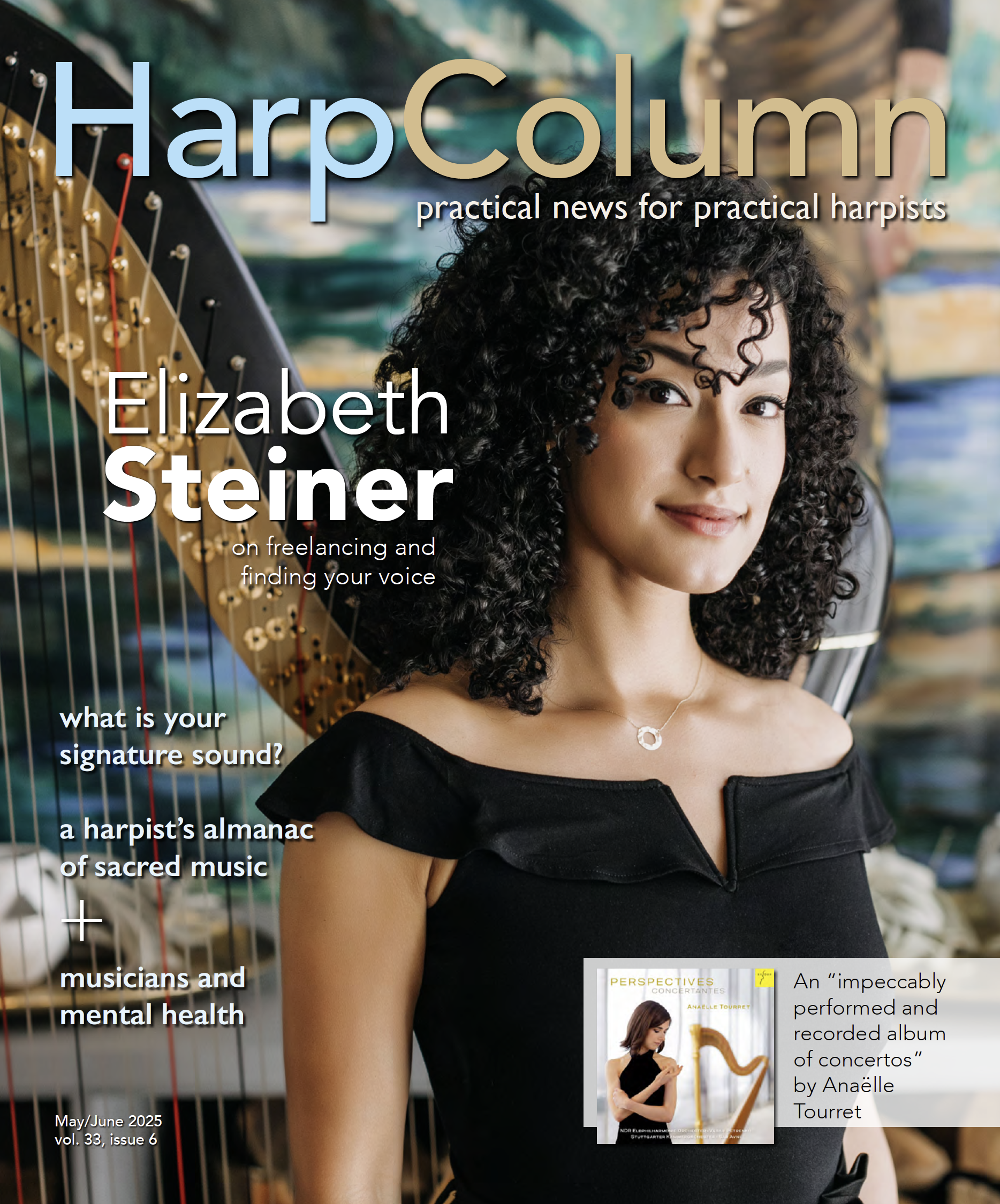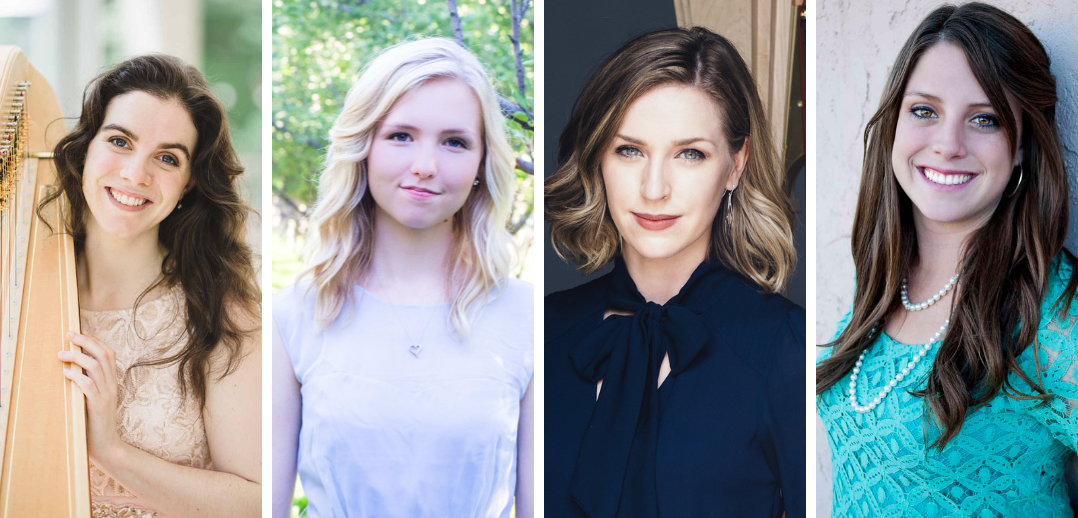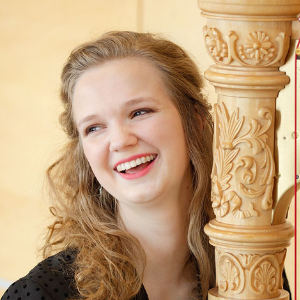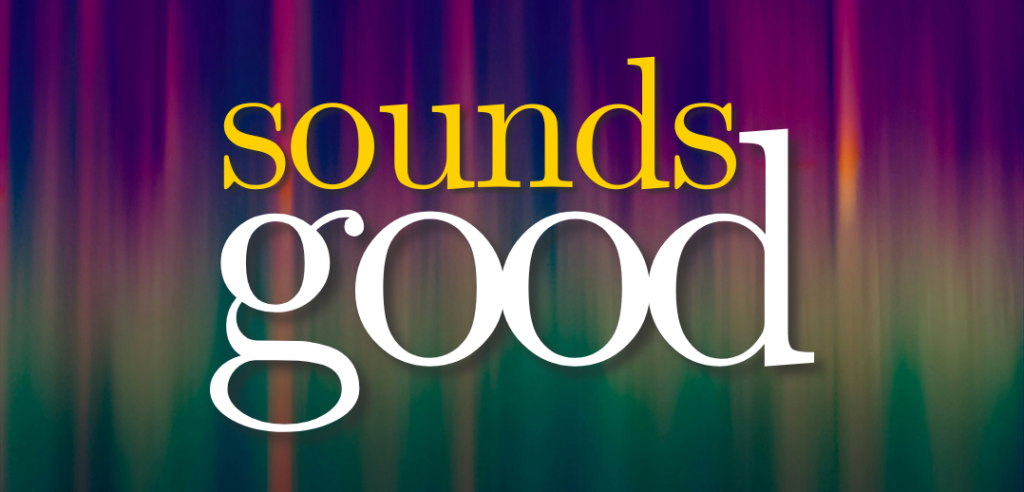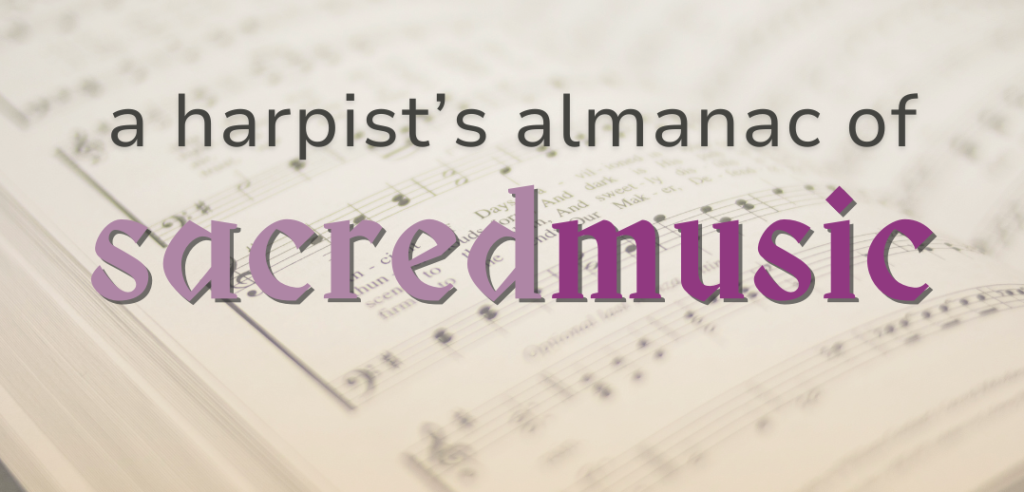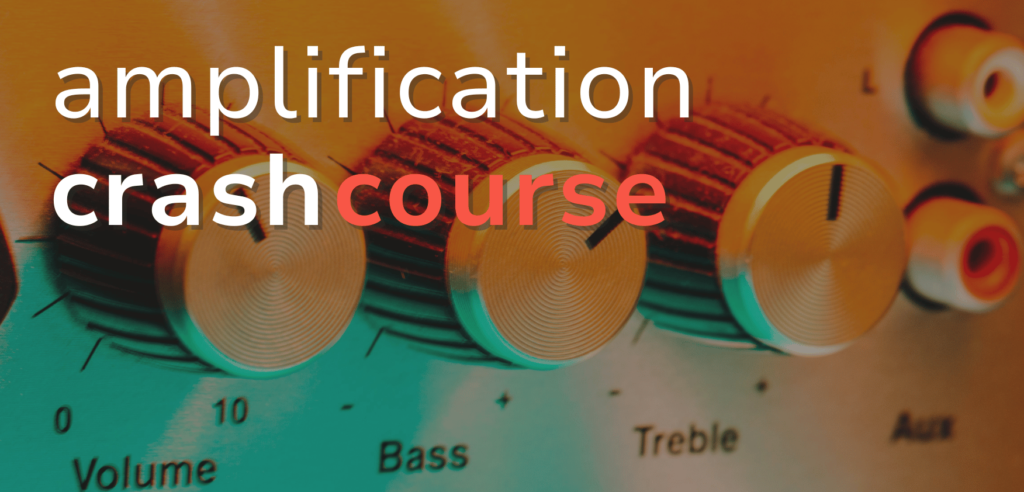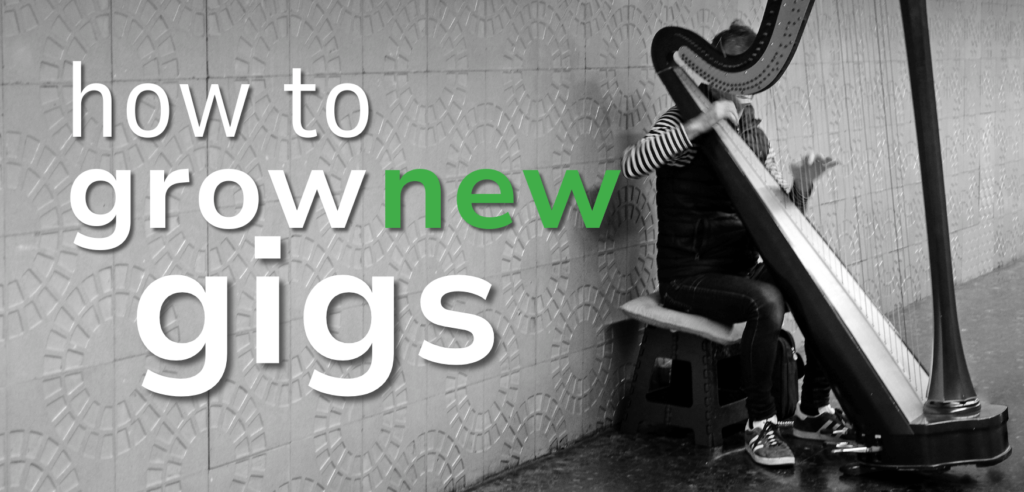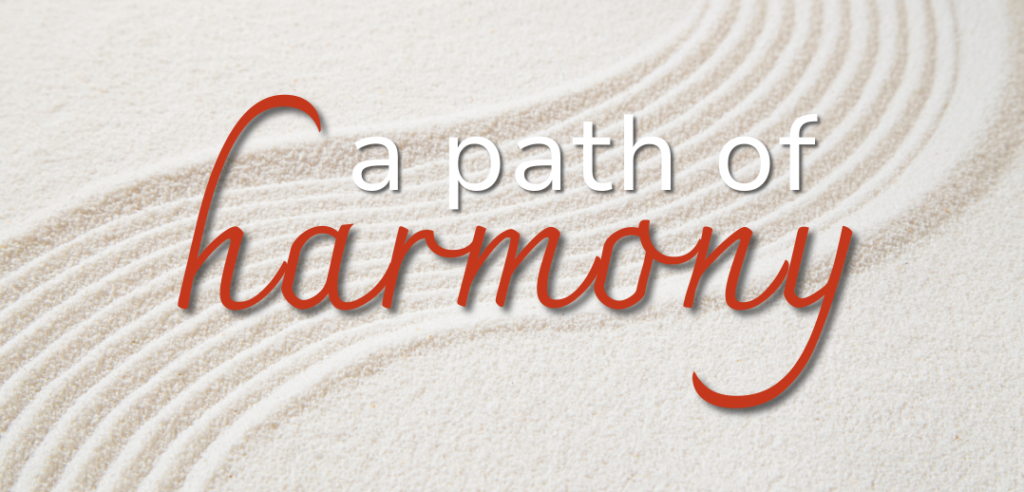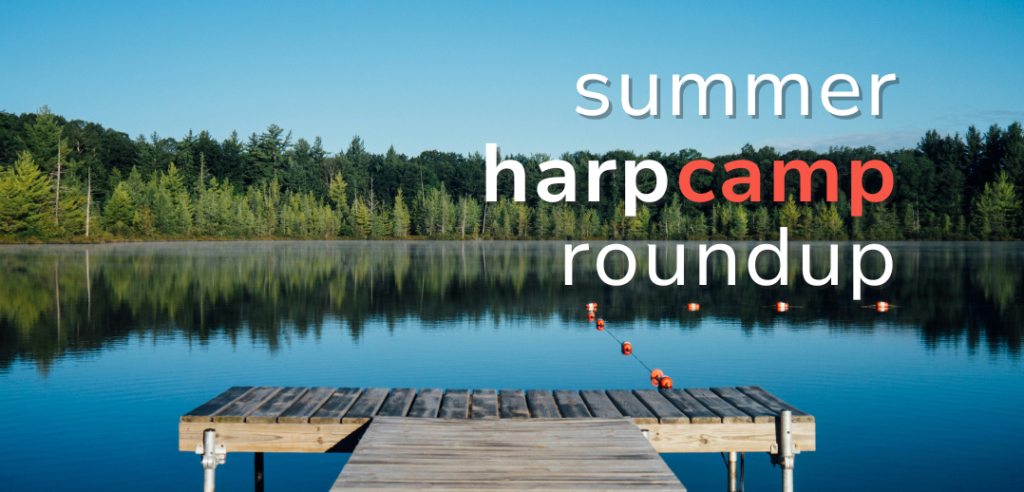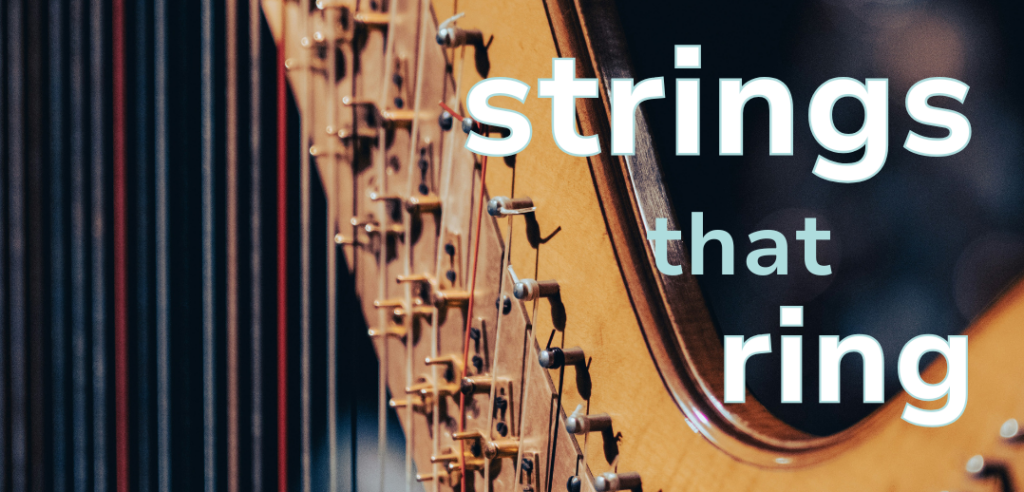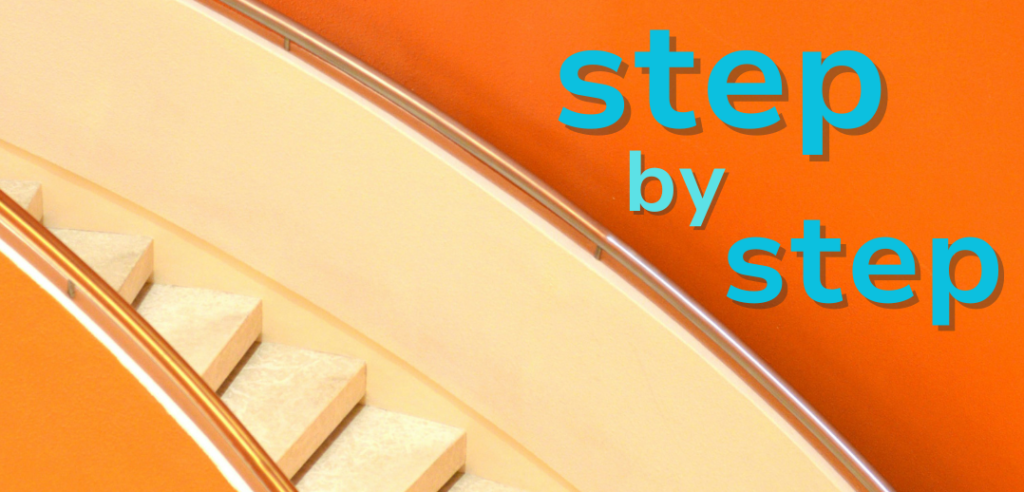Professional orchestra auditions came to a screeching halt along with everything else in the spring of 2020. It took a solid two years of waiting, but auditions are finally back. Like many aspects of our lives, the pandemic left its mark on the process and, perhaps more importantly, the perspectives of many harpists auditioning.
Rob Knopper, MET Orchestra percussionist and founder and creator of the website Audition Hacker, laid down some interesting facts about the resurgence of orchestra auditions, and we’ll take a look at those and what they mean for harp positions specifically.
We’ve all heard it and lived it—the last two years have altered the paths of many and forced us to re-examine our priorities. We talked to four recent finalists in orchestra auditions to hear their stories of disappointment, resilience, and growth. What they have to share is truly powerful.
First, let’s talk about the numbers.
In 2018, the International Musician (the trade magazine of the American Federation of Musicians Union that prints audition announcements each month) posted 296 full-time orchestra positions. Only two of these were harp positions. For those of you who like numbers, just 0.7 percent of open positions were harp jobs.
In 2019, 278 positions were posted. Five harp jobs this time—we’re up to 1.8 percent of available jobs!
In 2020, we saw a drought in auditions that mirrored musical activity throughout the world. Interestingly though, the number of retirements skyrocketed during that time. In a typical year, full-time orchestras see an average of three retirements; in 2020 some orchestras had up to 10–15 musicians retiring.
The audition scene remained pretty quiet until the summer of 2021. In the seven months following August 2021, the International Musician announced 337 auditions, a nearly 20 percent increase from the yearly average for the two years prior to the pandemic. Since March of 2022, three major U.S. orchestras—the Omaha Symphony, Sarasota Orchestra, and San Francisco Symphony—have all announced or held auditions, in addition to other per-service, regional, and part-time auditions.
Major orchestra auditions for harpists are definitely scarce and not for the faint of heart. Anyone who has ever attempted an orchestra audition knows the extent of mental, physical, musical, and emotional preparation required. The orchestra audition process is long and grueling, requiring the highest levels of stamina, determination, and confidence. The extended audition drought threw a major wrench in the preparation process for many harpists, so we were curious to see how harpists were navigating the audition scene today. We talked to four harpists who advanced to audition finals this year about their experience and how the pandemic shaped their mindset.
Goals beyond just winning
Phoebe Powell received a Bachelor of Music degree and an Artist Diploma from the Glenn Gould School of the Royal Conservatory of Music in Toronto, graduating in 2019. She is a second-year fellow with the New World Symphony in Miami.
Harp Column: Thank you so much for making time for me this evening, Phoebe! How has your summer been?
Phoebe Powell: Wonderful! I did the Spoleto Festival back in May, and now I’m enjoying a more quiet summer which has been amazing.
HC: How nice! It’s so important to take time to rest, which is one thing I wanted to ask you about. Congratulations on being a finalist for the Sarasota audition. Looking at the last two years we’ve had, how did those affect your audition preparation and mindset going into this year, and what changes have you noticed as you compare pre-pandemic to post-pandemic audition experiences?
PP: What a great question. Before the pandemic I was still in school, up until 2019. I find that in school you have that motivation to be practicing your excerpts, and you’re doing so many mock auditions. Judy Loman [retired Toronto Symphony Orchestra principal harpist] has been my main teacher and Heidi Van Hoesen Gorton [current principal harpist of the Toronto Symphony Orchestra] was my orchestral repertoire teacher, so I had these two really big figures in my life guiding me through the whole audition process. I felt like I was on a roll and in really good shape. Mentally, I’ve grown a lot since that time. When COVID happened, the Louisville and Sarasota auditions [originally scheduled for spring of 2020] got canceled, but I kept up my practice for a while, hoping they’d be rescheduled. When that didn’t happen, I hit a real lull, lacking that drive and motivation to get back into it. I moved to Miami [to play with the New World Symphony] in August of 2020, so when Sarasota was re-announced [for May of 2022], I had completed my first official year of New World Symphony, and I really felt in a much better groove. I looked at the audition differently this time around as far as my expectations. I would love to win the job, but if it’s not meant to be, it’s okay. Grace Browning and Julia Coronelli [both former New World harpists who recently landed principal harp positions] were incredible mentors for me in preparing, and helped me set attainable goals. I started to think about different goals I could achieve in the audition besides just winning, and that mindset shift completely changed my confidence. Grace recommended the book Train Your Own Hero by Don Greene, which was a game changer for me as well. It talks about how you speak to yourself in the practice room on a daily basis. I found, going into the audition, I could now understand how my brain was working and what tools I could use to get back to center. I was so happy with the entire audition experience because I knew what my intentions were, and I was able to achieve those, especially as far as how I was speaking to myself. I had a list of affirmations that I wrote down and would say to myself that morning and in the audition. A positive mantra, plus a solid support system made all the difference.
HC: The mental game is absolutely more than half the battle in auditions. Are there any external factors that you’ve noticed contribute positively or negatively to your audition experience?
PP: I was able to bring my harp since I was driving up from Miami and heading to Charleston for the Spoleto Festival right after. That was a huge luxury, but I did feel so much at ease on my own instrument. Other auditions I’ve never been able to bring my harp. Another thing for me is people chatting when we’re at auditions. So many of our friends are there and want to chat, but we can’t chat. After the semi-finals, I took my car and had a solid nap. You need to conserve your energy, especially if you’re playing later in the day. I also write down a schedule to manage my time frame as much as possible during the day.
HC: Anything else you’d like to share about your personal perspective on the return of auditions?
New World Symphony is an American orchestral academy based in Miami Beach, Fla. Established in 1987 and led by conductor Michael Tilson Thomas, the organization is a training ensemble for young musicians in preparation for professional careers in classical music.
PP: Interestingly, orchestra was not one of my passions originally. The National Youth Orchestra of Canada changed that all for me. It is so difficult for harpists because there is only one spot in every orchestra, and there can be massive droughts where you have to wait. It really takes resilience, because the nature of our job openings is sporadic and highly competitive. I always tell myself that everyone auditioning on that day is at this high level and deserving of the job. At the end of the day, it doesn’t define you if you don’t win. So, there’s an element of being willing to relinquish control of what the future might hold for you, but taking control of what you can do to keep creating and re-inventing yourself. I teach and take gigs, and take whatever comes. Be open to anything. I would love a job in an orchestra, but I’m also very okay with the reality that it may never happen. It’s a gift to be able to play music, and if I can share it with people in one way or another, I’m happy doing that. I have to say, it took me a very long time to get to that framework.
HC: Beautifully said and a great place to end. It’s inspiring to hear about your growth, and I can’t wait to see where it leads.
Look inward for improvement
Hannah Cope Johnson is the recent winner of the Sarasota Orchestra principal harp audition. She completed her graduate studies at the New England Conservatory in 2022.
Harp Column: Thanks for making time to chat while you are at the Tanglewood Institute! I’d love to talk about the return of orchestra auditions for harpists following very little activity during the pandemic. Looking at the last two years, how did this affect you, and what has changed about your preparation and mindset going into these major auditions this year?
Hannah Cope Johnson: Looking back, the pandemic has been a transformative period for my playing.
Fortunately, I’ve been able to continue my graduate studies with Jessica Zhou at the New England Conservatory during the pandemic, and she has expertly guided me in my excerpt preparation. Nothing compares to having the principal harpist of a Big Five orchestra help you with excerpts.
HC: That’s fantastic. How have you noticed progress in your audition preparation?
HCJ: For most of my harp life, I’ve tried to say yes to as much as possible. Every time an opportunity came my way, I would add it to my schedule—I didn’t want to miss the chance to learn something new from each unique gig, competition, or audition. I’m sure many musicians can relate to that. But when the pandemic hit, that stream of opportunities dried up. Then the U.S. Navy Band audition was announced for late 2020, and I jumped at the chance to try it. For months, it was the only project I had on the horizon. For the first time in my life, nothing was competing for my harp attention—this audition was my sole project. It was also my first professional audition, so I focused all my attention on making the most of it. I was able to dive into every excerpt on that list and decide exactly what I wanted to showcase in each one. I conquered bad habits in my playing that had crept in over the years. I made triumphant breakthroughs in other aspects of my technique. In the end I was incredibly prepared, and that audition experience was a life-changing success for me.
Only the environment of the early pandemic months could have provided me with that chance to look inward for improvement. I was so accustomed to saying yes to everything, only looking outward for growth. In normal times, I never would have had that transformative time to focus solely on my playing.
Fast-forward 18 months later to the two recent auditions I’ve taken—Fort Worth and Sarasota—and I’ve had quite a different experience. The stream of opportunities is back in full force, and I’m back to my old ways of doing as much as possible. However, thanks to my experience with the Navy Band, now I feel better equipped to maintain the technical and artistic integrity of my playing while balancing a lot at once. Not only were these two recent auditions held less than a week apart with different rep lists, but at the time I had just finished playing an international competition in Belgium, a new opera at school with a massive harp part, and my final graduate recital…all less than a month prior to the audition dates. My preparation this time around looked extremely different than my Navy Band preparation. But I believe a big portion of my recent success is due to the work I put into the Navy Band audition 18 months ago.
The biggest takeaway for me is that all of the hard work paid off—at both of these recent auditions, I was able to focus on the music and enjoy myself while performing for each committee. I felt I was able to show them my authentic self in my playing, and it is so encouraging to know that they liked it. One of the committee members at the Sarasota audition told me that my performance of an excerpt from Strauss’s Death and Transfiguration made her cry during the final round. I will never forget those kind words.
HC: Such amazing takeaways. Anything else you’d like to share about the audition experience and making it into finals?
HCJ: Every audition has taught me something new. I am grateful to have had these opportunities to learn and grow as a musician, and also to share music with listening ears. I still recommend saying yes to as much as possible, but I have been pleasantly surprised by what can be accomplished when the opportunities are few. I look forward to many more years of learning ahead of me.
The Big Five orchestras of the United States are the five symphony orchestras that were long considered to be the leaders and best in the field. They are (from oldest to youngest): the New York Philharmonic (1842), Boston Symphony Orchestra (1881), Chicago Symphony Orchestra (1891), The Philadelphia Orchestra (1900), and Cleveland Orchestra (1918).
Showing what you have to offer
Lauren Hayes holds degrees from Roosevelt University, the Royal Academy of Music, and the University of Arizona. She lives in Chicago where she teaches and freelances, frequently performing with Lyric Opera of Chicago.
Harp Column: Congratulations on being a recent audition finalist. Looking at the last two years and what we’ve been through as musicians and a break in auditions, what has changed about your preparation and mindset for auditions?
Lauren Hayes: The past two years have really put auditions into perspective. They are no longer the end-all-be-all, but more of a process. I’m much more excited going into auditions after the pandemic. The pandemic really highlighted what things are truly important—family and relationships—and auditions are only part of that picture.
HC: What internal and external factors contributed positively or negatively to your audition experiences?
LH: This year I’ve been much more organized. I scheduled what I would practice every day and how I would practice—doing metronome work and recording myself. I made a methodical practice chart and also did a lot more mock auditions, both in-person and a lot more virtually.
HC: Yes, virtual coaching gives you the opportunity to play for people that aren’t local.
LH: Exactly—we can play for musician friends all over the country, without bringing them into your living room.
Both the Sarasota Orchestra and Omaha Symphony auditions were extremely well run. Everything was clearly communicated and timely as far as when you would play. Mentally that was a huge factor because there was no guessing game involved. During both auditions I was pretty busy, and so I made it a priority to take care of myself. I was consistent with exercising and nourishing well, and I focused on doing things that brought me joy. Pre-pandemic I would shut down before auditions and kind of hibernate to focus. This time around I focused on doing things that made me happy and not sacrificing the other important things in life for the auditions. Negatively, two weeks before the Sarasota Orchestra audition I had a big trio concert, and I also have a steady studio of 25 students. The combination of both was a first for me before an audition.
HC: It’s definitely different to prepare for an audition as a professional—life doesn’t stop when an audition comes up.
LH: Yes—we have to pay rent, buy groceries, do laundry, take care of the dog, all those things. On the flip side, I was in great playing shape because of my busy performance schedule. And having both auditions back-to-back was a really great stepping stone.
HC: Did you have specific goals that you focused on for the Sarasota audition that built on the Omaha audition?
LH: Yes. My goal for the Omaha audition was to play everything rhythmically. Going into Sarasota, I built onto that a goal of consistency in my preparation, which required much more recording and fine-tuning detailed work.
HC: Very interesting. Anything else you want to share about your overall perspective on the frequency of harp auditions or positions opening up?
LH: It’s definitely scary that there are fewer full-time orchestra auditions than there used to be. I think it shows the level of confidence and preparation you need to have in every situation. I also want to mention that another big thing that changed for me is I’ve become the biggest advocate for therapy. I started with a therapist during the pandemic, and we focused a lot on identifying my values and developing a healthier relationship with competition. My mindset has completely shifted from competing against others to using auditions as a chance to show the panel what I have to offer and see if it would be a good fit for the orchestra musically.
HC: Thank you so much for sharing that, I think that’s really valuable.
LH: It was interesting, I was at the Midwest Harp Festival recently, and there was a panel with a bunch of Chicago harpists with very different professional backgrounds. One question that was asked was, “How do you juggle everything?” My answer was I don’t anymore. I’ve learned how to say no and realized that for me personally, my non-negotiable is having 8 hours of sleep every night. I won’t schedule a double gig or rehearsal if I can’t get a good night’s sleep!
HC: Fantastic advice! Anything else you want to share?
LH: There were so many fine harpists at both of these auditions, and I was just thrilled and humbled to make it through two full rounds. I think we need to focus on our strengths and show who we are individually as musicians, not just harpists, and how we fit into the music world.
HC: What a great place to end. Thank you and all the best to you, Lauren.
Trust your training
Chloe Tula is the recent winner of the Omaha Symphony principal harp audition. She performs across the country as an orchestral harpist and soloist, having completed a three-year fellowship with the New World Symphony in 2020. She holds a Bachelor of Music degree from the Shepherd School of Music at Rice University.
Harp Column: Thank you for taking the time to talk with me—how are you doing?
Chloe Tula: I am doing well. I just did some work in my garden this morning. The peaches and pluot trees at my place were ready to be harvested today, which is very exciting.
HC: I got into herb gardening this summer and I’ve been very dedicated to making sure my plants have long and flourishing lives.
CT: Once you start, you get hooked. Pretty soon you’ll have a whole veggie garden on your hands.
HC: You are probably right. Well, first off, congratulations on winning the Omaha Symphony audition. How exciting to be starting with them next season!
CT: I’m definitely excited. It’s really cool to finally have a full-time position after subbing with a lot of different orchestras. It’s a place I can call home—finally!
HC: Absolutely. Looking at the last two years we’ve had, how did that affect you, and what changed your preparation and mindset going into major auditions this year?
CT: I started taking auditions back in 2015, and I took a lot of auditions especially in the last few years—in 2019 when there were back-to-back auditions for a bunch of different positions. I was at the New World Symphony (NWS) at the time, and they gave me a lot of tools to prepare for the auditions, but it was also just a lot to be doing all at once, especially since I was fresh out of undergrad and getting used to the real world, so to speak. In some ways, there was a small silver lining to the global pandemic in that I finally found space to breathe. It was a really good opportunity for me to regroup, center myself, and be more focused on what I wanted to accomplish musically. There were definitely times during the pandemic that I barely touched the harp. I was moving across the country from Florida to California in summer of 2020, and my daily practice regimen I had worked so hard on at NWS pretty much became non-existent. So when the Omaha audition came up, I was genuinely excited for it. I felt so much more clarity with myself as a musician and a person. A week before the audition, I was also subbing with the Omaha Symphony, which made it feel like the stars were aligning. I felt really relaxed going into it, and I think that’s ultimately what helped me succeed.
HC: In speaking with other harpists, there certainly seems to be a common thread that the pandemic provided an opportunity for self-reflection that allowed for a mindset shift going into auditions post-pandemic. What sort of external factors contributed positively or negatively to the audition experience for you?
CT: At auditions in general, it’s great if the orchestra lets you play on the harp you will audition on prior to being actually on stage, behind the screen. I have a checklist of things to test on the harp in the warm-up room at any audition—taking the harp to extremes of playing the bass wires really loudly, plus checking tuning and regulation specific to excerpts. For example, in Tristan and Isolde, with the top A-sharps on page 4 of the excerpt, I have two different ways of playing it, either with an A-sharp or a B-flat, because it depends on the regulation of the harp. Very rarely have I had the opportunity to audition on my own harp, so I’ve gotten used to playing on provided instruments and having contingency plans for things like bad strings or the regulation not being quite perfect.
HC: Anything else about your preparation that you felt was unique for this audition?
CT: For the first time ever, I had the opportunity to work with only myself and coach myself, and not rely on someone else to provide feedback. That was a little frightening at first, but now thinking back, I realized that I’ve spent years training for this, and by now I know what sounds good, what works, and what doesn’t.
HC: I think there’s huge value in that. You trust your intuition in making the musical choices. That comes through to the panel because you are confident in that intentionality.
CT: I was also really busy leading up to the audition, and I didn’t have time to get nervous. For the first time, I let myself not focus so hard on the audition and avoided psyching myself out in advance.
In the last two years, with a move across the country to the San Francisco Bay Area, I basically started over as a freelancer. It has been a really life-changing experience working with a variety of orchestras in the area. At each gig, I have been working with a different group of colleagues, and I really have had to rely on the consistency of my own guidance and strive for the best preparation for each thing that has come up, be it an opera or a symphony or a pops show. Taking this audition was the cherry on top of the work I’ve done. I knew if I didn’t get the job, I was still going back to a fulfilling life of constantly showing up for myself and building on my playing. That was pretty much the mindset shift for me. I was more comfortable with what I was doing beyond going for these big jobs. I still think even with this job, I am going to appreciate a lot more about life now than if I had gotten something like this before the pandemic.
HC: I’m so happy to hear that. We can all relate to the positive aspects of slowing down and realizing what’s truly important after a time like this.
CT: Yes. I loved my time at NWS, but being surrounded by people always winning jobs in that sort of pressure-cooker environment where you’re expected to win a job too is a little stressful. It’s nice to be able to not have so much of your ego or reputation on the line when you’re taking an audition. And I realize this is an incredibly privileged thing to say, but I do think everyone can find a mindset where they feel there is more to life than just winning an audition.
HC: I 100 percent agree. And your experience is the opposite of being able to set aside life for audition prep.
CT: Exactly! Like I mentioned before, I was super busy in February and March and didn’t really have a lot of time to set aside to prepare for this audition. I remember at one point before the audition, I was sitting in the pit for a production of Carmen at Opera San Jose and thinking, can I whip through Salome real quick by memory at intermission? That will be my ten minutes of practice today!
HC: Haha! Love it. Anything else you want to share as far as audition advice?
CT: Wear comfy clothes—nice looking, but something you can still sit around in all day and breathe in. Being organized with my excerpts in a good binder was another way I felt prepared. Also, eat a good breakfast. I usually don’t get hungry in the morning when I’m nervous, but I at least tried to force myself to eat a banana, and that gave me enough energy to make it through the audition.
HC: Thank you so much for taking the time to talk. I’m excited for you, and it’s inspiring to hear your story. Congratulations, again!
Even if your harp life doesn’t include professional orchestra auditions, we can all appreciate the growth these harpists have experienced. Balance, perspective, and self-reflection are important for everyone to cultivate in their lives. Whether you’ve been a musician for decades or just took up a new hobby, there’s no doubt that musical growth and personal growth are closely tied. While we hope never to go back, the pandemic gave us a perspective we never would have otherwise had. Let’s not waste it. •
Two audition lists, days apart
The auditions for the Fort Worth Symphony Orchestra and the Sarasota Orchestra were held just days apart in May of this year. Complicating matters for harpists wishing to take both auditions was the fact that there was only a little overlap on the audition lists.
Fort Worth list
Solos:
Mozart, Concerto for Flute and Harp, mvts. 1 and 2
Excerpts:
Berlioz, Symphonie Fantastique
Britten, The Young Person’s Guide to the Orchestra
Mahler, Symphony No. 5
Ravel, Piano Concerto in G Major
Ravel, Tzigane
Rimsky-Korsakov, Capriccio Espagnol
Stravinsky, Symphony in Three Movements
Tchaikovsky, The Nutcracker
Sarasota list
Solos:
Handel, Concerto, mvt. 1
Mozart, Concerto for Flute and Harp, mvts. 1 and 3
Ravel, Introduction and Allegro, cadenza
Excerpts:
Bartok, Concerto for Orchestra
Berlioz, Symphonie Fantastique
Bizet, Carmen Orchestral Suite No. 1
Britten, The Young Person’s Guide to the Orchestra
Bruch, Scottish Fantasy
Debussy, Prélude à l’après-midi d’un faune
Massenet, Thaïs
Ravel, Alborada del Gracioso
Ravel Tzigane
Rimsky-Korsakov, Capriccio Espagnol
Strauss, Death and Transfiguration
Stravinsky, Symphony in Three Movements
Tchaikovsky, The Nutcracker
Verdi, La Forza del Destino




